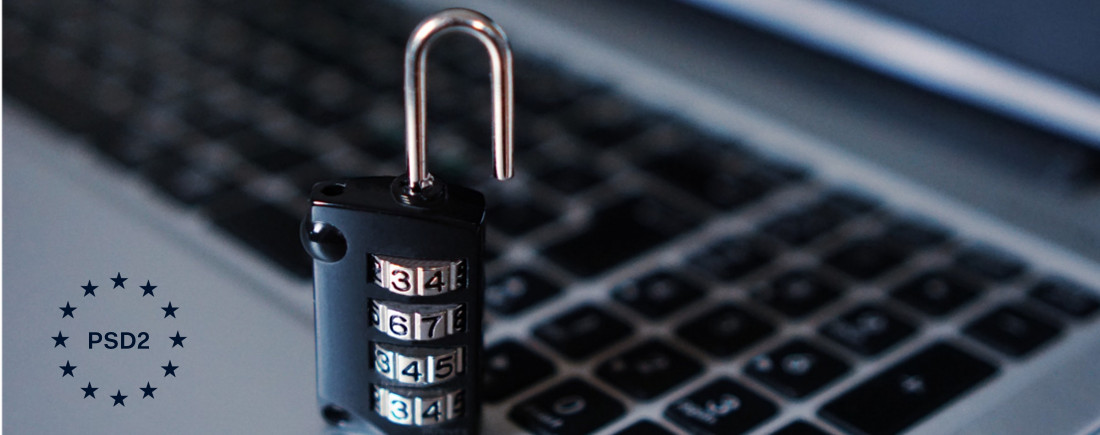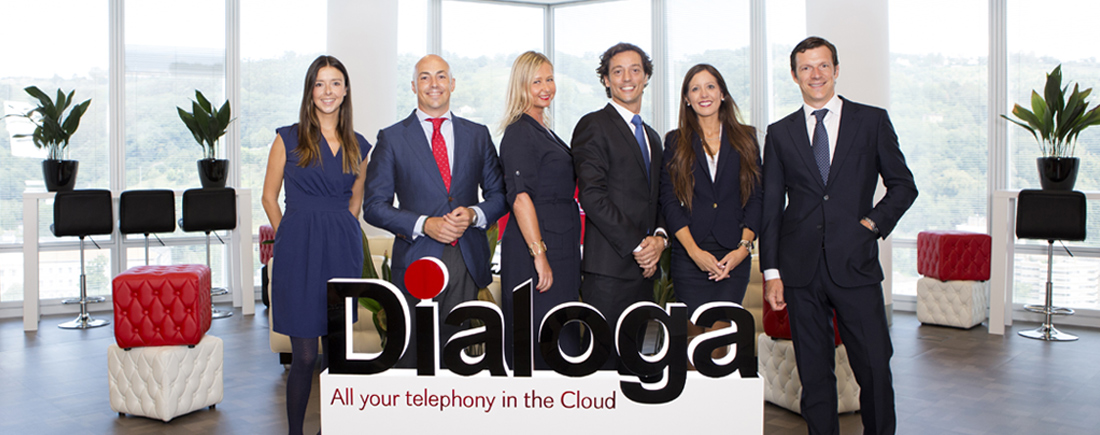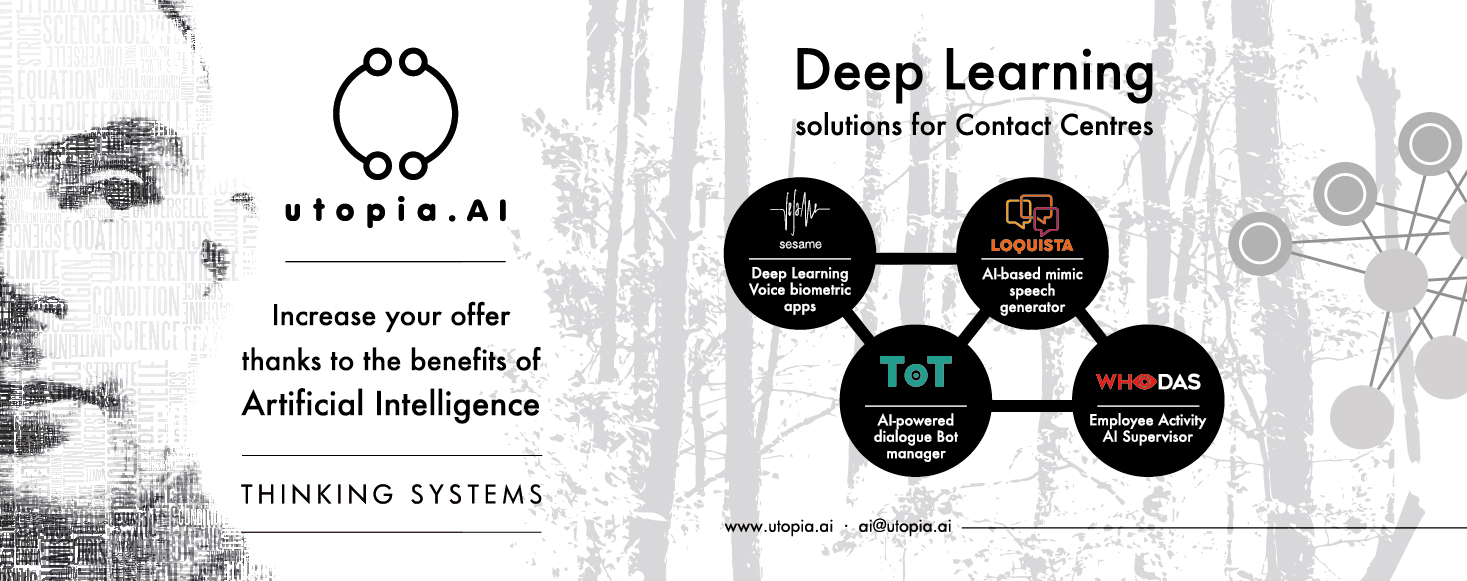Interviewer: “Utopia is a company exclusively focused on artificial intelligence. ¿Which businesses or sectors are its products designed for?”
utopia.AI: “Our main clients are call centers and customer service departments. All companies that utilise these areas can benefit from the advantages of our products, regardless of their sector.
We are facing a period of disruption and immense change. Large companies like Google, Facebook and Amazon offer artificial intelligence frameworks for general business environments. Utopia.AI goes one step further by developing algorithms specific to each client and their sector. Our clients do not simply contract a third party to develop their software, rather they become a partner allowing the essence of their business to be reached by working jointly with Utopia. Specialisation, as well as constant evolution and learning, are key factors in artificial intelligence. Each of these elements is directly reflected in the way we work with our clients.”
Interviewer: “When companies consider incorporating these types of automated services, they do so in order to reduce costs and improve efficiencies. How do the company’s solutions contribute to this?”
utopia.AI: “Artificial intelligence creates greater efficiencies and an improved experience for the client. A business can save between 30-60% of a human agent’s time with the incorporation of our intelligent call management systems or email or instant messaging service, resulting in instant cost savings. Our solutions are designed with a single objective: to assist and support call center agents. The automation of some call center tasks allows agents to better dedicate their time to what is really important, the rapid resolution of problems and improved customer service.
We must not, however, forget another of the significant benefits; the total control of the activity of the customer service department. Through technologies such as natural language processing or emotion analysis we enter into each conversation, its contents and emotions, all in real time. It is a complete revolution when compared to traditional CRM systems.”
Interviewer: “Utopia offers two types of products, Sesame and ToT. What is the difference between both?”
utopia.AI: “In a very concise way, we could say that Sesame responds to the question “who” while ToT enters into the “what” of the conversation.
Sesame is a system that identifies a person based on voice and imagery biometric technology. From previous conversations, Sesame creates a voice print, which like for fingerprints, is completely unique. This allows for the identification of each caller in real time, without the need for any previous registration.
ToT, on the other hand, is designed to assist the agent. ToT can respond directly to the client offering them level 1 support, saving agents’ time and significantly reducing call waiting times. With each conversation, this support provided to the agents becomes even more efficient through the progressive learning capability of the system. ToT is constantly developing and learning from the continuous analysis of contact center conversations, and does so whilst specialising and adapting to each sector. Each day, its capacity to respond to clients is further strengthened from this continuous learning. The utopia of a machine capable of learning on its own has become a reality.
In Utopia, we believe it is important to differentiate between ToT and what is known as chatbots. Chatbots are usually based on scripts, similar to the tree-structure responses offered by a traditional IVR. Such systems are not artificial intelligence, rather a mere chat IVR, which tend to tire and frustrate the client. Currently only companies with large teams of developers, like in Utopia, are in a position to offer solutions based on authentic artificial intelligence.”
Interviewer: “Focusing on Sesame and the idea of biometric voice identification, what tasks can this product perform efficiently?”
utopia.AI: “Sesame, as a biometric identification system, has diverse applications in a call center. Key examples are increased security and the ability to combat fraud and identity theft, common problems that call centers face on a daily basis. Clearly the need for increased security is especially required in sectors that manage sensitive information, such as in health, finance and insurance. Voice biometric technology provides businesses with an efficient tool in order to identify a caller in real time during the normal course of the conversation.
We can also use Sesame as a way to allow clients to use their voice as a password in order to access certain information or services. The user benefits in not having to remember yet another password and the business benefits through the increased security and being able to verify effectively that the person trying to access the service is who they say they are.
It is important to understand that our products are not closed solutions with predefined functions. In Utopia.AI we adapt our sector specific algorithms to the needs of each client, applying artificial intelligence in a completely personalised way and through mutual collaboration with the client.”
utopia.AI. “The utopia of a machine capable of learning on its own has become a reality”. May 19, 2017.





